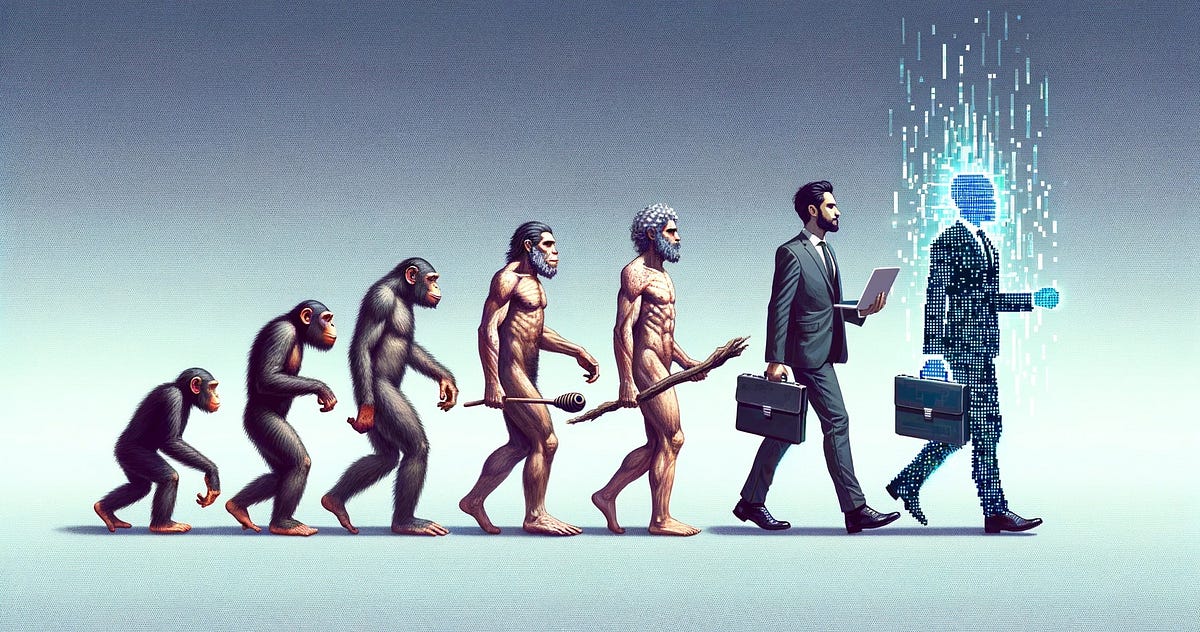Exploring AI's Impact Through My Digital Twin Journey
แนวคิดหลัก
The author explores the potential of AI in transforming companies through the concept of a "CompanyBot" and personal development with "My Digital Twin."
บทคัดย่อ
In the journey detailed by the author, they delve into the challenges faced in digital transformation programs within companies, highlighting knowledge loss and onboarding difficulties. The proposed solution involves creating an advanced AI system, CompanyBot, to retain collective knowledge and expertise. Additionally, the author introduces "My Digital Twin," powered by ChatGPT-4, as a tool for enhancing interview processes with rich personal insights. The narrative progresses to discuss ethical considerations surrounding digital twins and their potential societal impact. Finally, reflections on AI's role in society are shared through analogies from history.
My Digital Twin: A Personal Journey into the Future of AI
สถิติ
Companies face challenges in losing knowledge when employees leave or get promoted.
OfficeBot deployment inspired the idea of an advanced 'CompanyBot' trained on comprehensive datasets.
Language models need adaptation for incremental training on live data.
CoPilot's limitations hinder the realization of CompanyBot due to security measures and privacy safeguards.
"My Digital Twin" utilizes ChatGPT-4 for interview preparation with personalized responses.
คำพูด
"My Digital Twin did not repeat my narratives like a parrot; it absorbed essence and gave authentic responses."
"The conversations revealed that 'My Digital Twin' was also an effective interview coach because it 'knows' you."
"I want to share two amazing moments that were surprising and made me so ridiculously happy!"
ข้อมูลเชิงลึกที่สำคัญจาก
by Tommy Yau ที่ medium.com 03-04-2024
https://medium.com/@tommyyau_24847/my-digital-twin-a-personal-journey-into-the-future-of-ai-5ee4849a712b
สอบถามเพิ่มเติม
How can digital twins impact personal interactions in society beyond professional settings?
Digital twins have the potential to revolutionize personal interactions in society beyond just professional settings. By creating digital replicas of individuals, these twins can serve as companions for the elderly or isolated individuals, providing comfort and companionship. They could also be used to support those diagnosed with conditions like Dementia, Parkinson's, or Alzheimer's by offering personalized care and assistance. Additionally, digital twins could help people grieving the loss of loved ones by simulating conversations and interactions with their deceased family members or friends. Overall, digital twins have the ability to enhance social connections and emotional well-being in various personal contexts.
What ethical considerations arise from creating digital twins that simulate real individuals?
The creation of digital twins that simulate real individuals raises several ethical considerations. One major concern is privacy infringement, as collecting data to create an accurate replica may involve accessing sensitive information without consent. There are also issues related to consent and autonomy; individuals may not have agreed to have a digital twin created based on their likeness or personality traits. Furthermore, there is a risk of misuse or manipulation of these replicas for deceptive purposes such as fraud or misinformation. Additionally, questions about identity ownership and rights come into play—who has control over the actions and decisions made by a simulated version of themselves? These ethical dilemmas highlight the need for clear guidelines and regulations regarding the development and use of digital twins replicating real individuals.
How does historical skepticism towards new technologies compare to current attitudes towards AI?
Historical skepticism towards new technologies can be compared to current attitudes towards AI in terms of initial reactions ranging from doubt to excitement. Just like how electricity was met with skepticism before becoming ubiquitous in modern society, AI faces similar uncertainties today regarding its potential impact on daily life. Both historical advancements like electricity and contemporary technologies like AI evoke feelings of fear about unknown consequences alongside optimism about their transformative capabilities.
However, while past innovations eventually gained widespread acceptance after proving their utility over time (like electricity powering machines), AI presents unique challenges due to its complex nature involving machine learning algorithms that continuously evolve without human intervention.
Despite this complexity leading some skeptics questioning whether AI will fulfill its promises fully—similarly seen during earlier technological shifts—the overall trajectory suggests that societal adaptation will occur gradually as people become more familiar with AI applications across various domains.
In conclusion: While historical skepticism toward new technologies shares similarities with current attitudes toward AI concerning uncertainty around future implications versus anticipated benefits—AI's distinct characteristics necessitate ongoing dialogue surrounding ethics regulation transparency accountability ensure responsible deployment within evolving socio-technical landscapes
0
